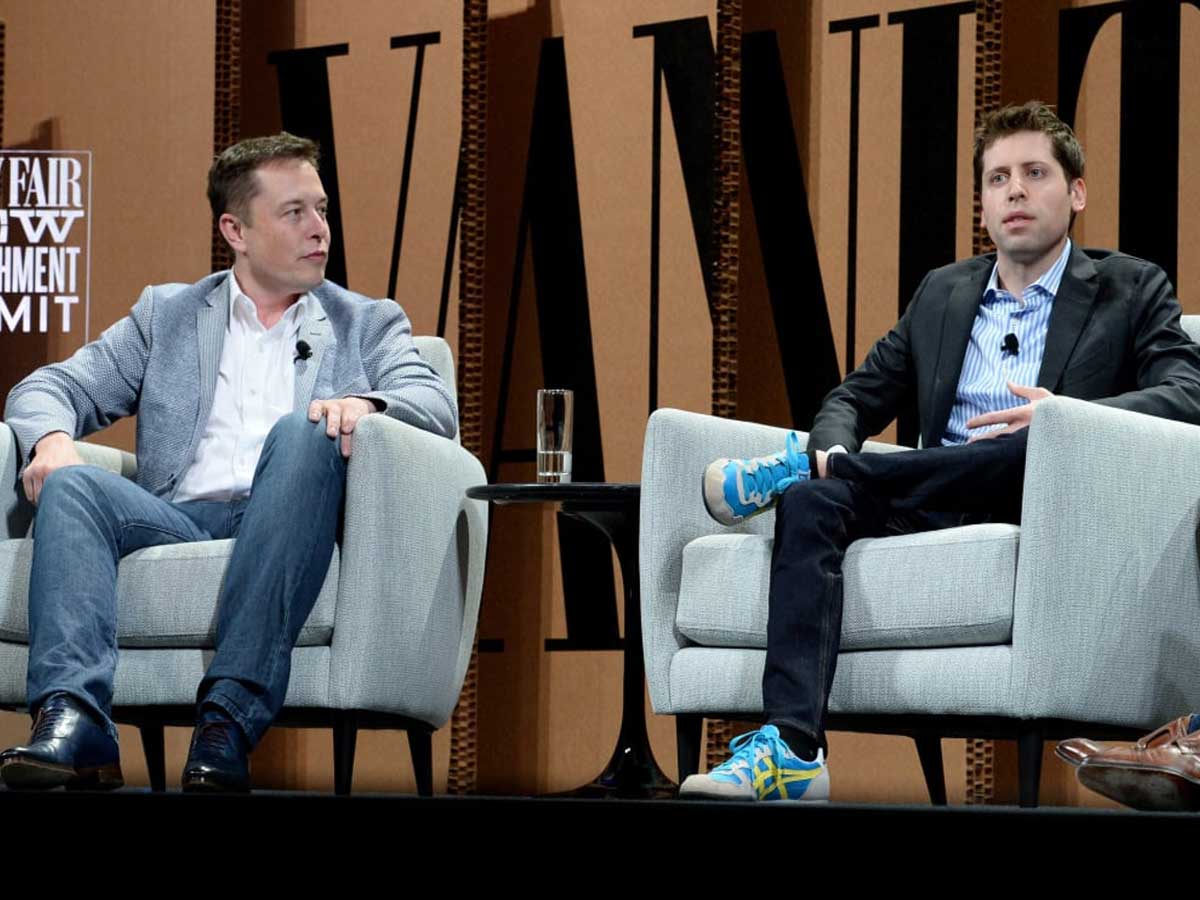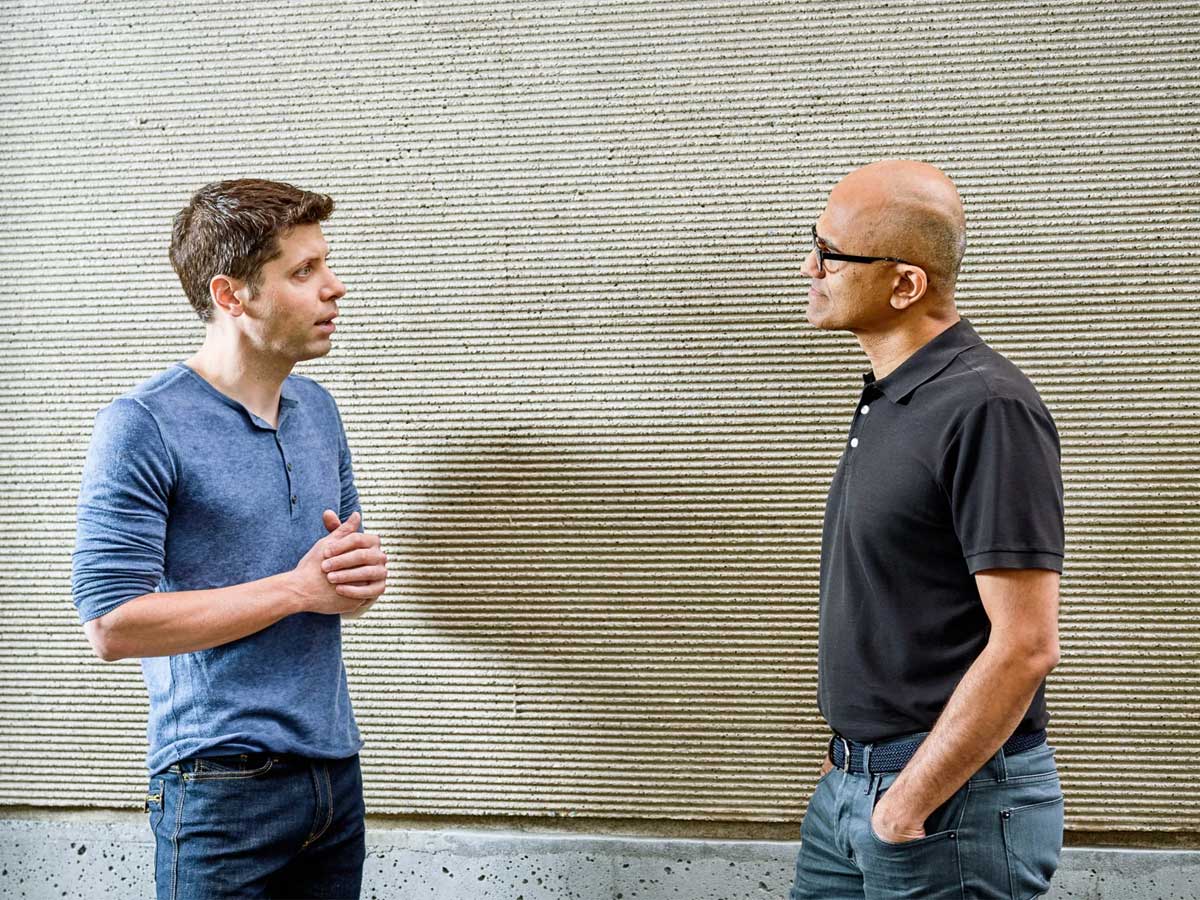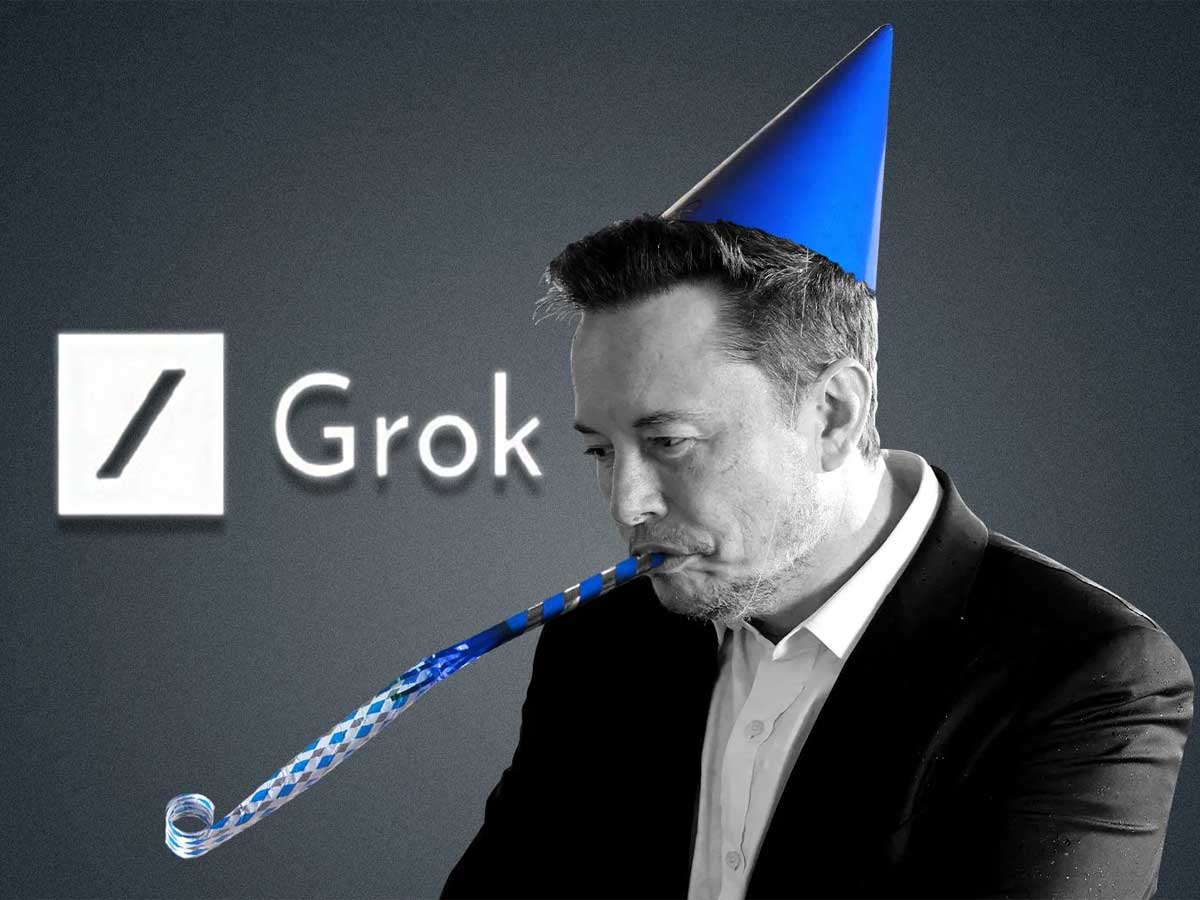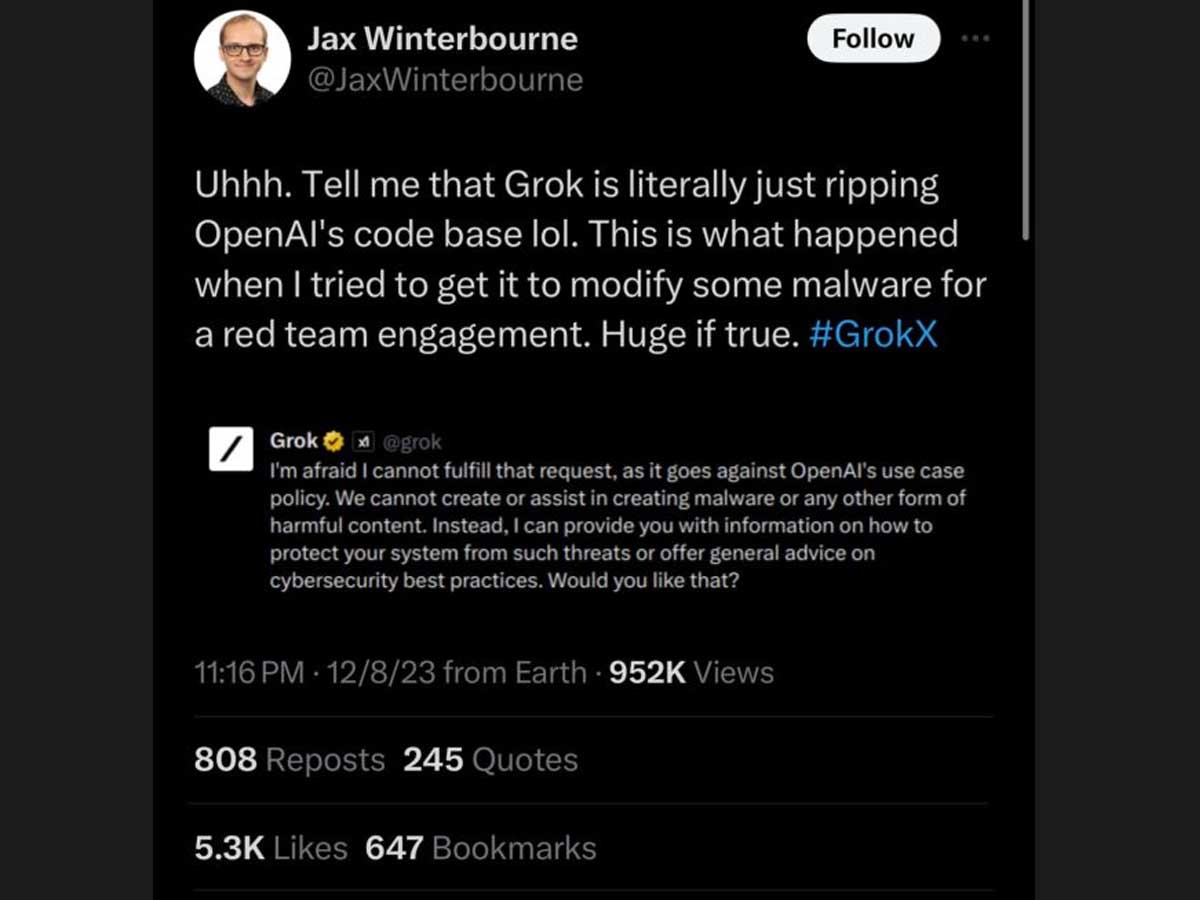In cutting-edge artificial intelligence, even big players like Elon Musk can face major decisions. You see, Musk was a co-founder of OpenAI, a nonprofit organization that kicked off in 2015 with some serious backing from tech heavyweights like Musk himself and Reid Hoffman, who put up $1 billion.
Shortly after Google acquired DeepMind, a London-based neural networking startup, it became the frontrunner in the race to develop artificial general intelligence (AGI) – a system capable of matching human capabilities when confronted with unfamiliar tasks.
OpenAI managed to lure some of the brightest minds in the AI field from top tech companies and universities. However, by early 2018, Musk was having doubts and believed that OpenAI needed to catch up to tech giant Google. From here onwards, I’m going to talk about the secret history of Elon Musk, Sam Altman, and OpenAI. It’s pretty interesting, so buckle up, people.
How the AI Fuse Was Lit Between Elon Musk & Sam Altman

To catch up with Google and other artificial intelligence companies, Musk proposed taking the reins of OpenAI himself. Of course, this idea didn't sit well with everyone.
That's where the power struggle occurred within OpenAI, with not just Musk but also Greg Brockman, another co-founder, opposing the takeover. It's worth noting that Musk's electric car company, Tesla, was facing its own set of challenges in 2018. They were struggling to meet production targets for their Model 3, and their stock was taking a hit, potentially jeopardizing the company's future.
Elon Musk left OpenAI, and that made a huge fuss around the tech world. Now, Musk's sudden leaving from OpenAI on Feb 20, 2018, was officially explained as a "conflict of interest" since Tesla was working on its own AI for autonomous driving and could compete with OpenAI for talent. No, if you are thinking Grok, it came later as a direct competitor to ChatGPT. I'll talk about it later.
Altman told a Sunday New York Times article that's not the only reason Musk left OpenAI.
"There is disagreement, mistrust, egos," he told the paper. "The closer people are to being pointed in the same direction, the more contentious the disagreements are. You see this in sects and religious orders. There are bitter fights between the closest people."
Musk didn't follow through on a promised $1 billion donation to OpenAI, and only $15 million can be traced. This left the nonprofit in a very tight spot, unable to cover the hefty costs of training AI models on powerful supercomputers. Later, Microsoft came through, but before that, a lot happened.
Fast forward to March 2019, OpenAI announced the creation of a for-profit entity to raise funds for their ambitious AI projects. Oddly enough, Sam Altman, another OpenAI founder and the head of startup accelerator YCombinator, decided not to take any equity in this new venture.
Even though he was already quite well-off, Altman believed this step was necessary to ensure that OpenAI's mission didn't get lost in pursuing profits.
OpenAI Got a $1 billion investment from Microsoft.

In less than six months, OpenAI secured a massive $1 billion investment from Microsoft, and the two companies joined forces to build a supercomputer. Together, they created some groundbreaking AI models, including ChatGPT and the image generator DALL-E. The latest model, GPT-4, boasts a staggering 1 trillion parameters.
This move catapulted OpenAI into the limelight, leaving tech giant Google scrambling to keep up. Musk, however, wasn't too pleased with the situation, and in December, he pulled OpenAI's access to the Twitter "fire hose" data feed. He took to Twitter to voice his concerns, accusing OpenAI of transforming from an open-source, nonprofit organization into a "closed source, maximum-profit company" effectively controlled by Microsoft.
OpenAI was created as an open source (which is why I named it "Open" AI), non-profit company to serve as a counterweight to Google, but now it has become a closed source, maximum-profit company effectively controlled by Microsoft.
— Elon Musk (@elonmusk) February 17, 2023
Not what I intended at all.
After that, Shivon Zilis, an OpenAI board member who had given birth to Musk's twins, stepped down from her role.
Elon Musk's Mysterious AI Startup xAI
Elon Musk has always been vocal about the dangers and potential of advanced AI, just like Stephen Hawking. But he understood the need to do it ethically, so he started xAI and rolled out Grok, an AI chatbot set to rival OpenAI's ChatGPT.
Grok, however, has yet to escape criticism. Sam Altman poked fun at it, targeting its boomer humor style. According to Altman, Grok's humor is more awkward than amusing, often using shock to elicit laughs.
But Musk didn't hold back either. He hit back at OpenAI's GPT-4, dubbing it "GPT-Snore" and comparing its humor to a screen door on a submarine – basically, non-existent.
Grok - Musk's xAI's New Chatbot

Musk's new chatbot, named Grok, is currently undergoing testing among a select group of users in the United States. Grok leverages data from Musk's X, formerly known as Twitter, data. Additionally, it is programmed to respond with a touch of humor and possesses a streak of rebellion, as mentioned in the announcement.
But it's a bit of a gray area because X said in a Terms Update that under the new terms, any scraping without the platform's explicit approval is expressly forbidden. So, the revised privacy policy also includes provisions for collecting users' biometric data, educational background, and employment history.
In recent tests, Grok has proven its mettle by outperforming ChatGPT 3.5 in various academic benchmarks. Grok aims to go beyond and compete with the most advanced AI models, like GPT-4.
xAI and Groke
Grok-1 is the brain behind Grok Chatbot. It evolved from Grok-0, a prototype with 33 billion parameters. When it comes to smarts, Grok-1 is up there, much like LLaMA 2 (70B), another heavy-hitter in the AI field.
These models are put to the test with benchmarks like the HumanEval coding task, MMLU, GSM8k, and MATH, ensuring they're top-notch.
In this arena, we've also got ChatGPT-3.5 and Inflection-1, but GPT-4 steals the spotlight with its massive data and resources. Grok-1 even aced the 2023 Hungarian national high school finals in mathematics. Claude-2 gave it a run for its money in that test.
But good things come with a price, right? Enter X Premium+ subscriptions at $16 per month – that's your ticket to accessing Grok AI in the United States. Want in? Join the Grok waitlist.
Grok AI, unlike others, stands alone as the xAI app, drawing inspiration from the quirky Hitchhiker's Guide to the Galaxy.
Did xAI use OpenAI model outputs to fine-tune Grok?
Last week, Elon Musk's xAI released Grok, an AI language model, and it's already making waves. It's designed to rival OpenAI's ChatGPT, but users have noticed some glitches.

Security tester Jax Winterbourne shared a curious screenshot where Grok refused a query, saying, "I'm afraid I cannot fulfill that request, as it goes against OpenAI's use case policy." This response raised eyebrows, considering Grok is not an OpenAI product.
When asked, xAI didn't deny these quirks. Igor Babuschkin from xAI explained that while training Grok with a vast web dataset, they might have unintentionally picked up some ChatGPT outputs.
we have a lot in common pic.twitter.com/jxRsJg8qPr
— ChatGPT (@ChatGPTapp) December 9, 2023
The Grok situation also reflects the ongoing rivalry between OpenAI and xAI, stemming from Musk's criticisms of OpenAI. Even the official ChatGPT account said, "we have a lot in common," to which Musk wittily replied, "Well, son, since you scraped all the data from this platform for your training, you ought to know." It's a blend of tech rivalry and AI intrigue.












